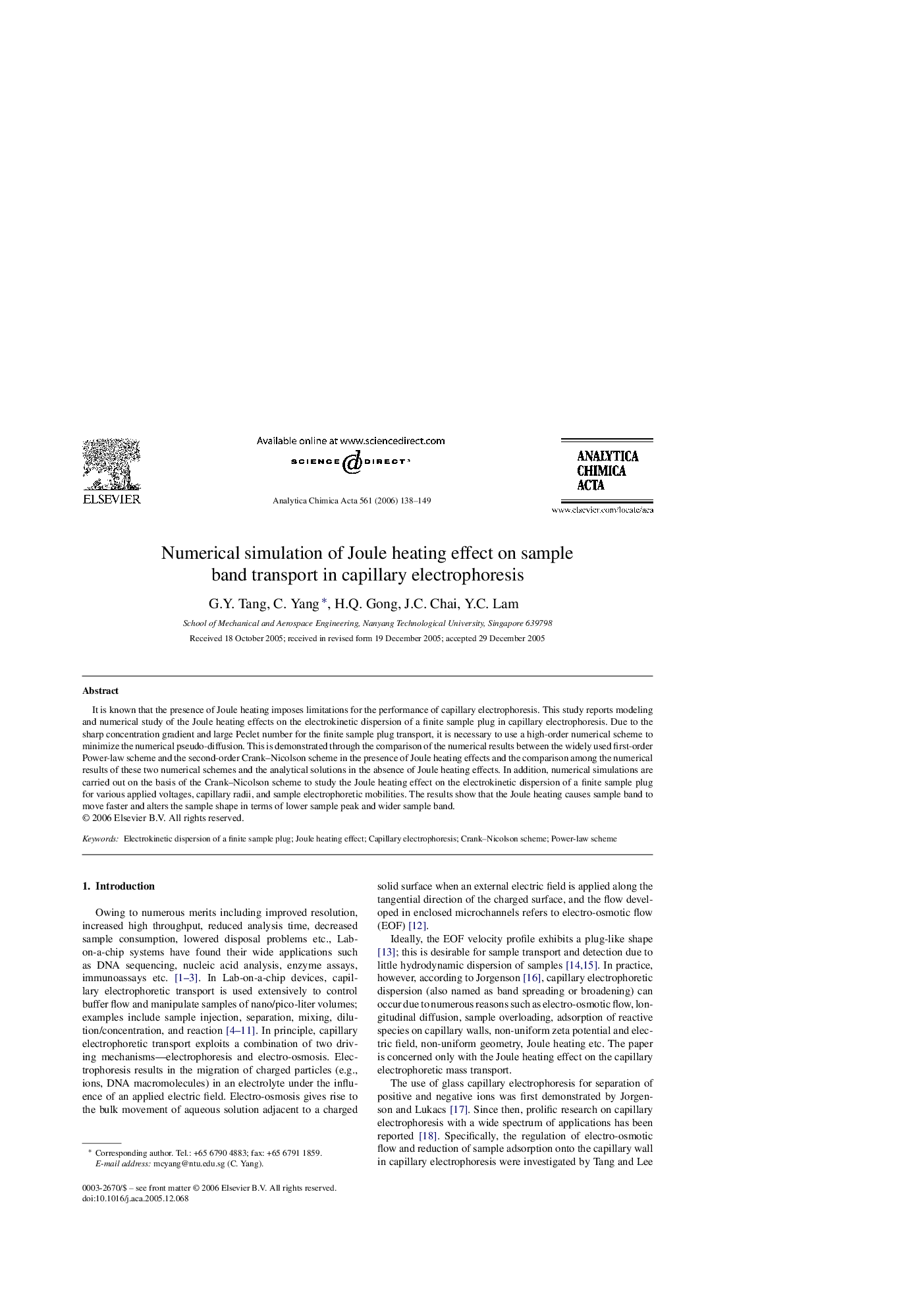| Article ID | Journal | Published Year | Pages | File Type |
|---|---|---|---|---|
| 1172192 | Analytica Chimica Acta | 2006 | 12 Pages |
It is known that the presence of Joule heating imposes limitations for the performance of capillary electrophoresis. This study reports modeling and numerical study of the Joule heating effects on the electrokinetic dispersion of a finite sample plug in capillary electrophoresis. Due to the sharp concentration gradient and large Peclet number for the finite sample plug transport, it is necessary to use a high-order numerical scheme to minimize the numerical pseudo-diffusion. This is demonstrated through the comparison of the numerical results between the widely used first-order Power-law scheme and the second-order Crank–Nicolson scheme in the presence of Joule heating effects and the comparison among the numerical results of these two numerical schemes and the analytical solutions in the absence of Joule heating effects. In addition, numerical simulations are carried out on the basis of the Crank–Nicolson scheme to study the Joule heating effect on the electrokinetic dispersion of a finite sample plug for various applied voltages, capillary radii, and sample electrophoretic mobilities. The results show that the Joule heating causes sample band to move faster and alters the sample shape in terms of lower sample peak and wider sample band.
